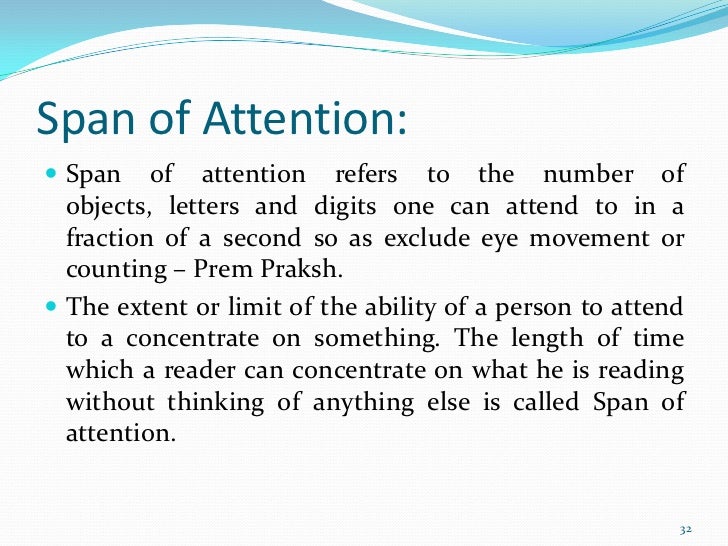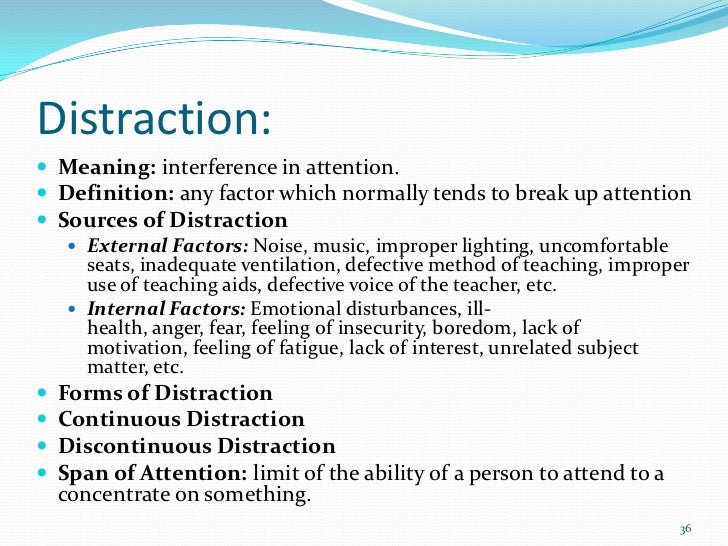

It might help to understand mental energy and alertness if we think of a firecracker when it is going off. Just the way our bodies need physical energy if we are going to run, our brains need mental energy if we are going to think. In other words, we need to feel like our battery is charged, like our brains have energy. If we are going to do something, or listen to someone, the first thing that we need is to feel alert and aroused. Alertness and ArousalĪlertness is the initial step in the attention process. Let’s look now at each of the components of attention. In addition, Russell Barkley (1997, 1998) has also contributed to our understanding of attention. Levine (1987, 1990, 1998, 2002) has provided a conceptual framework for understanding the attention process and what happens to students when breakdowns in this process occurs. We cannot understand, learn or remember that which we do not first attend to. Attention allows us to plan or preview and monitor and regulate our thoughts and actions.Īttention is the first step in the learning process. In other words, it is a complex process that includes feeling alert and aroused, selecting what we should be attending to, ignoring what we don’t want to attend to, and maintaining our focus for the right amount of time. Active attention also involves effort (Gaddes, 1994).Īctive attention is a multidimensional cognitive process that includes the ability to select and focus on what is important at any given moment, the ability to consistently maintain mental effort while performing tasks that require mental energy and the ability to inhibit action or thought while previewing alternative actions or thoughts. Active attention is voluntary and is guided by alertness, concentration, interest and needs such as curiosity and hunger. We might say that because passive attention is involuntary, it is easy. Passive attention refers to the involuntary process directed by external events that stand out from their environment, such as a bright flash, a strong odor, or a sudden loud noise. There are two major forms of attention: passive and active. It involves a number of processes including filtering out perceptions, balancing multiple perceptions and attaching emotional significance to these perceptions. Teacher’s comment to young Albert Einstein, from Albert Einstein by Ibi Lepscky.Īccording to John Ratey (2001), attention is more than just noticing incoming stimuli. Your behavior at school, so distracted and absentminded, and your poor interest in all I teach set a bad example for the whole class. It would be nice if you would leave, Albert. It is possible for people to manage their attention problems.People differ in their ability to focus their attention at the right time on what is important.

It is difficult to pay attention to things when we are tired, sick or not feeling well.Emotions such as feeling anxious, sad or depressed make it harder for people to pay attention.It is hard for most people to pay attention to things that are not very interesting or exciting to them.It is easy for almost anyone to pay attention to things that are interesting or exciting to him.For example, not listening to the directions in class can cause a student to do an assignment wrong, and running a stop sign can cause an adult to have an accident or get a traffic ticket. Not paying attention to what you are doing can be a problem for both children and adults.Everybody fails to pay attention sometimes, but some people fail to pay attention a lot.Paying attention is the first step in the learning process.What is ADHD? Updated September 23, 2021.By Glenda Thorne and Alice Thomas Attention Quick Facts Updated January 1, 2020.Ĭenters for Disease Control and Prevention. What Are Disruptive, Impulse-Control and Conduct Disorders? Updated September 1, 2021. Personality and Social Psychology Bulletin. Attachment and Jealousy: Understanding the Dynamic Experience of Jealousy Using the Response Escalation Paradigm. Huelsnitz C, Farrell A, Simpson J, et al. Self-Esteem and Reactive Aggression: An EMG Biofeedback Training Approach. What are Personality Disorders? Updated November 1, 2018.Ĭleveland Clinic. Low Self-Esteem Predicts Indirect Support Seeking and Its Relationship Consequences in Intimate Relationships. Athens Journal of Mass Media and Communications. An Investigation of Attention-Seeking Behavior through Social Media Post Framing.


 0 kommentar(er)
0 kommentar(er)
